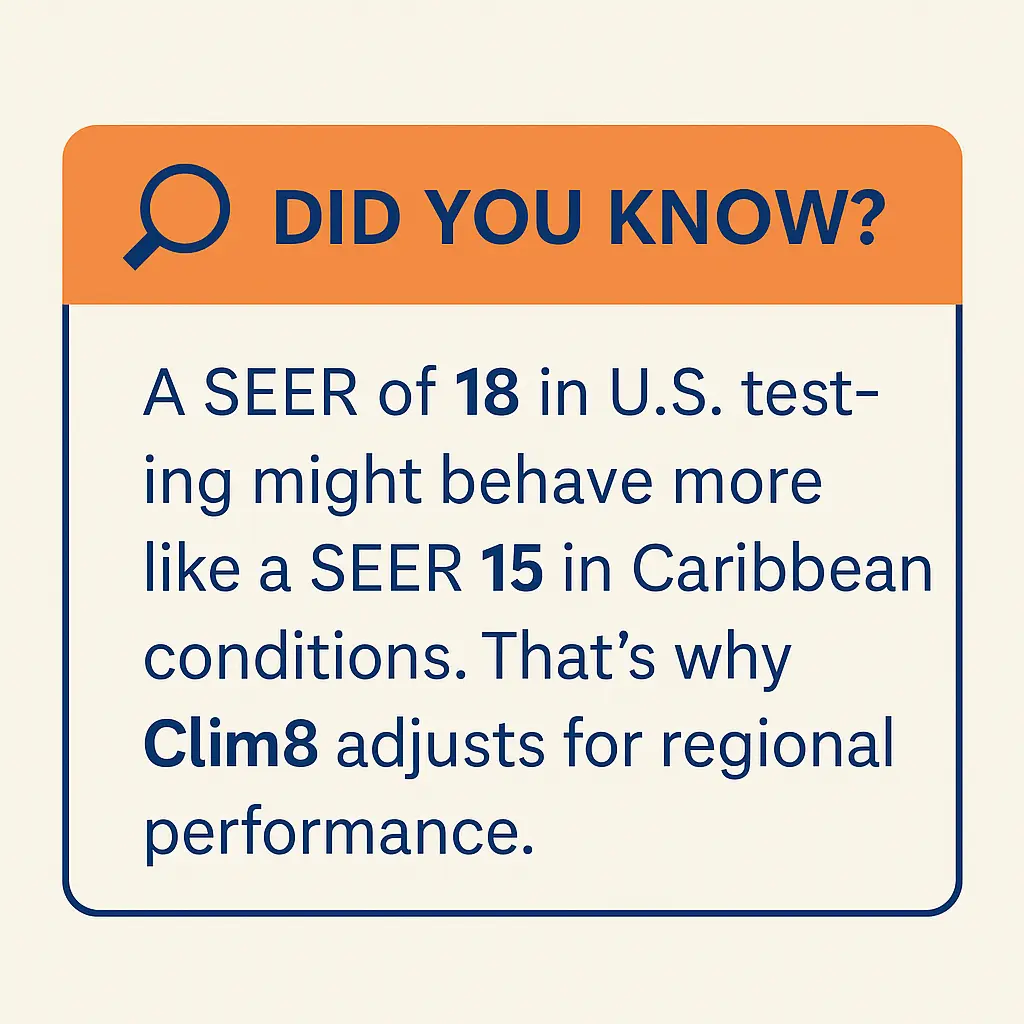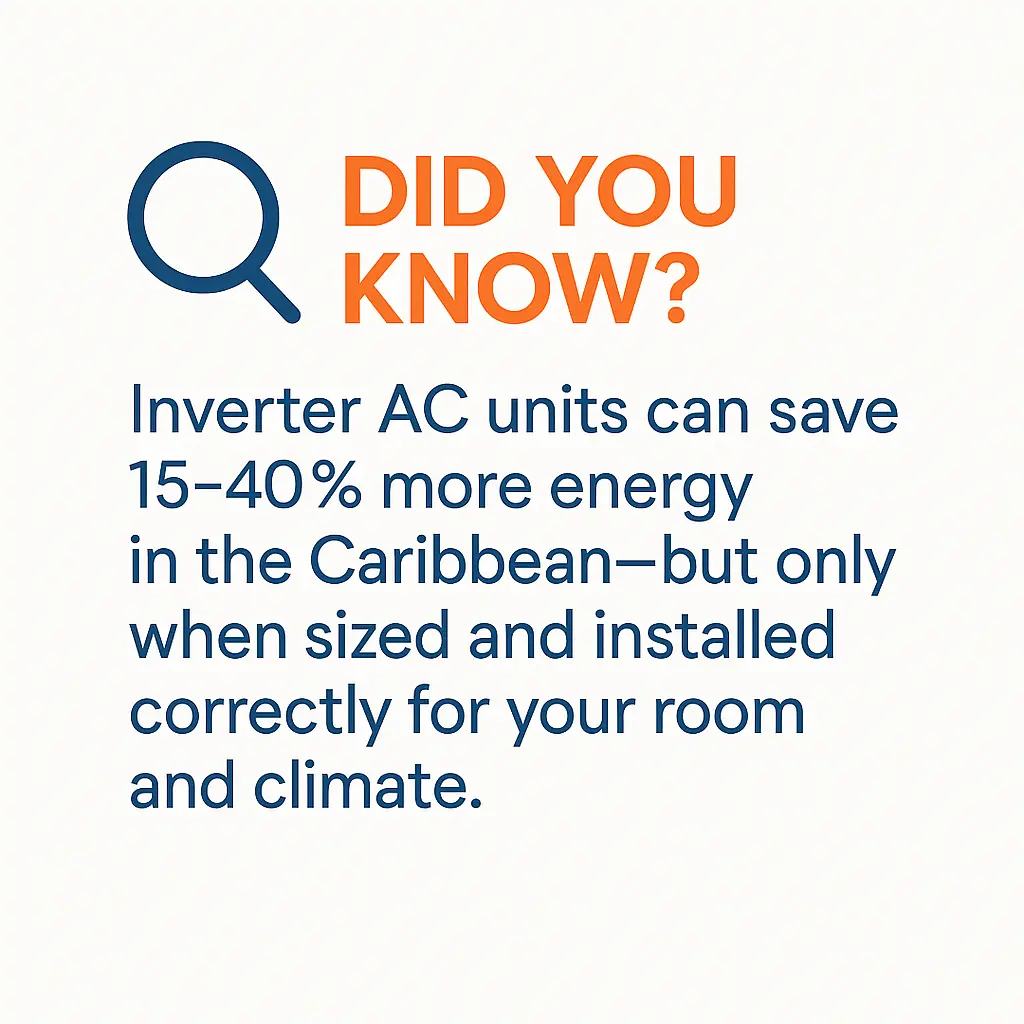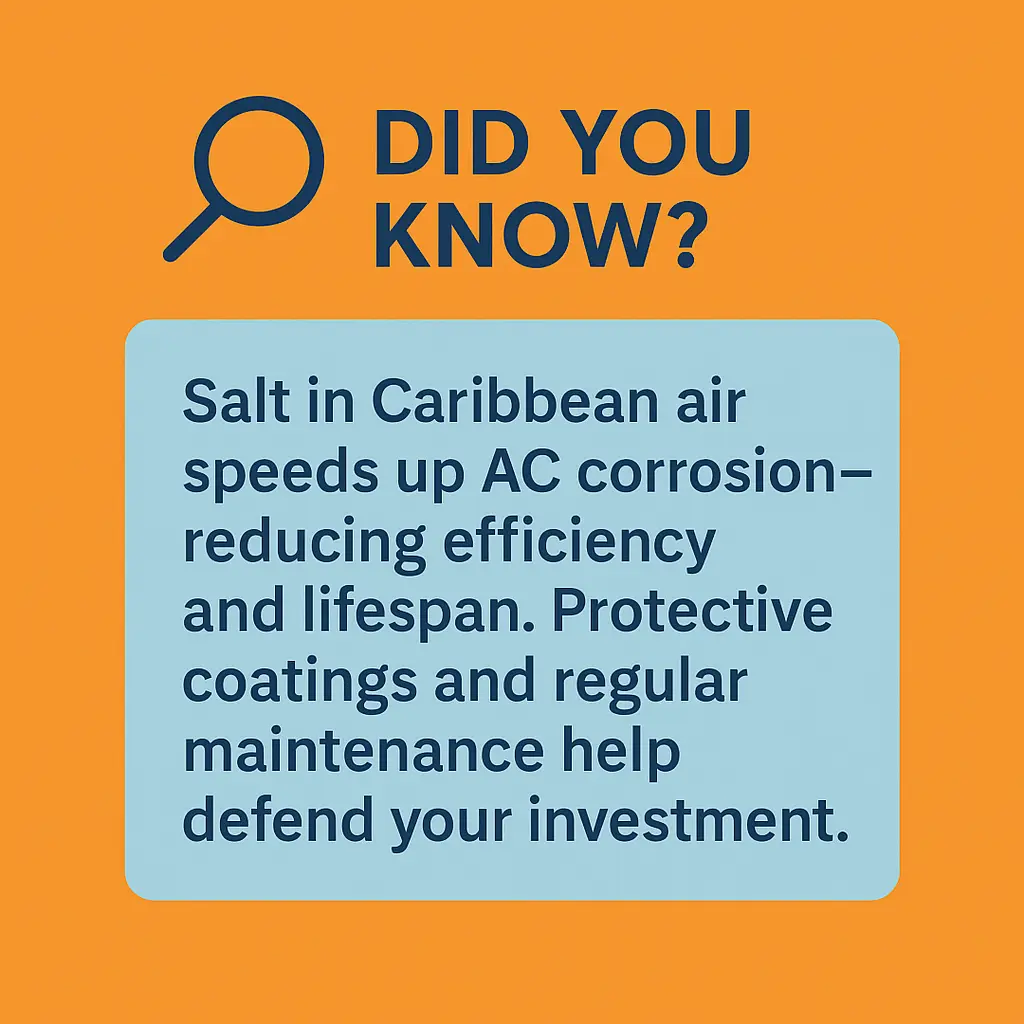Choosing an HVAC partner in the Caribbean is not just about price — it’s about ensuring resilience, reliability, and long-term efficiency in one of the world’s most demanding climates. Salt air, high humidity, hurricanes, and inconsistent power make vendor selection critical.
This guide provides a practical, brand-agnostic scorecard and checklist to help homeowners, businesses, and institutions select the right HVAC vendor for Caribbean conditions.
Vendor Evaluation Scorecard
Score vendors 0–5 on each category. Weighting is shown in parentheses for total score.
- Engineering depth (15%) — load calculations, VRF/chiller design capability.
- OEM certifications (10%) — certifications from Mitsubishi Electric, LG, Carrier, Trane, etc.
- Commissioning & QA (10%) — factory tools, documented handover, test reports.
- Salt-air resilience (10%) — coated coils, stainless steel fasteners, SPDs, NEMA enclosures.
- Parts inventory + lead times (10%) — available stock on-island, replenishment times.
- Service SLAs (10%) — response times in hours, 24/7 coverage, spares on truck.
- Energy & dehumidification expertise (10%) — latent load control, ERVs, humidity strategy.
- Multi-island footprint or partners (8%) — presence across the region.
- Warranty strength (7%) — labor coverage, on-site swap options, DOA process.
- References in your sector (10%) — experience with hotels, banks, supermarkets, clinics.
Must-Have Specs for Caribbean Installs
- Corrosion protection: Epoxy/polymer-coated coils, stainless steel 304/316 hardware, UV-rated plastics, surge protection.
- Humidity management: Low-SHR equipment, reheat/dehumidification strategy, ERV where appropriate.
- Hurricane readiness: Rated mounts, line-set protection, corrosion-resistant drain design.
- Service clarity: Written maintenance plan (bi-monthly or quarterly) and on-site critical spares list.
Fast RFP Checklist
Use this checklist when preparing a Request for Proposal:
- Project profile + design conditions (°F/°C, RH, occupancy).
- Drawings/room data + electrical single-line diagram.
- Salt-air/corrosion requirements (coatings, hardware spec).
- Factory certifications (list models) and commissioning tooling (mandatory).
- Service SLA (response times, escalation, holiday coverage).
- Parts inventory on your island (SKU/qty table) + replenishment lead times.
- Warranty terms (years on parts, compressor, labor; DOA process).
- Handover deliverables: TAB/commissioning reports, as-builts, O&M manuals, training.
- Evaluation: submit completed scorecard with supporting evidence.
Key Questions to Ask Before You Commit
Instead of comparing logos or marketing claims, focus on the questions that reveal how well a company understands Caribbean realities:
- Do they specify corrosion-resistant materials by default?
Look for epoxy-coated coils, stainless fasteners, UV-resistant plastics, and surge protection. - Can they provide verified load calculations for your site?
A professional vendor should design from data, not guesswork. - Do they keep critical parts on-island?
Long lead times can cripple operations — always ask what’s stocked locally. - How fast is their emergency response?
Check for 24/7 coverage, escalation protocols, and stocked service trucks. - Are their technicians factory-certified for your brand?
This ensures installations and repairs meet OEM standards. - What’s included in their warranty?
Some vendors cover only parts, others include labor and on-site swaps. - Do they have references in your sector?
A company that has cooled a hospital, supermarket, or bank in similar conditions can likely handle yours. - Do they offer a maintenance plan that fits your usage?
Bi-monthly or quarterly service keeps systems efficient and compliant with warranty terms.
Before You Choose Your HVAC Partner
The Caribbean is not a standard HVAC market. Choosing the right vendor means looking beyond catalog BTUs and upfront costs. Use this scorecard, checklist, and question set to demand transparency, resilience, and long-term support. The decisions you make today will determine whether your system thrives in the salt, sun, and storms of tomorrow.


